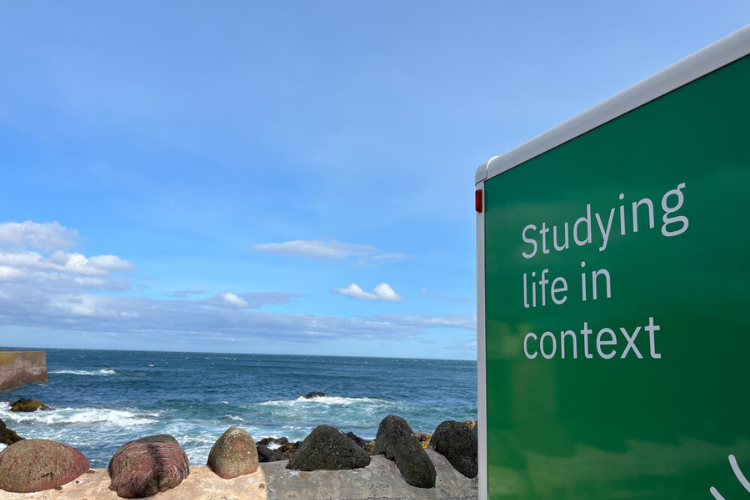University hosts major scientific expedition studying Europe’s coastlines
 A major scientific expedition to understand biodiversity and ecosystems along Europe’s coastlines comes to the University of St Andrews this week.
A major scientific expedition to understand biodiversity and ecosystems along Europe’s coastlines comes to the University of St Andrews this week.
The expedition, entitled ‘TRaversing European Coastlines’ (TREC), will visit the University of St Andrews’ Scottish Oceans Institute (SOI) from Friday 25 August to Friday 1 September, and will see a research vessel moored in St Andrews Bay.
The two-year project is gathering information about how organisms interact with each other and their environment at a molecular level. St Andrews is one of over 120 sampling sites across 22 European countries. In Scotland, TREC has already visited St Abbs, and there will be additional sampling at Edinburgh, Tentsmuir National Nature Reserve in North Fife, and Aberdeen.
Led by the European Molecular Biology Laboratory, together with the Tara Ocean Foundation, the Tara Oceans Consortium, and the European Marine Biology Resource Centre, TREC also involves many national and local research institutes, such as the Scottish Oceans Institute (SOI).
While at the SOI, mobile labs will sample on land while the schooner Tara samples out at sea. The scientists will collect and analyse soil, sediment, aerosol, water samples, and small living organisms to generate a census of biodiversity on land and at sea, while also recording environmental conditions, such as temperature, pH, salinity. They will also record the presence of pollutants such as antibiotics and pesticides.
Importantly, the pan-European nature of the project means that samples are taken in a standardised way, enabling scientists to compare and probe data across Europe in a way not previously possible.
Director of the SOI, Dr David Ferrier, said: “It is very exciting to be a part of a major expedition like TREC. This is ‘big science’ at its best – producing a wealth of urgently needed data that is made freely available to help address major global challenges such as climate change, biodiversity management, and the health and sustainability of our oceans and the life connected with them, including humans.
“Our seas and coastlines host an extremely rich diversity of life and play a critical role in the stability and sustainability of wider ecosystems. However, planetary changes such as global warming, human activity and pollution lead to ecosystem destruction, loss of diversity, and spread of antibiotic resistance. By bringing new data and expertise together, and making it openly available to the scientific community, TREC aims to help understand coastal ecosystems and address global challenges.”
Picture shows TREC sample processing arrived at the partner institute, St Abbs Marine Station earlier in August.
Photo credit: Jonas Richter EMBL
Issued by the University of St Andrews Communications Office.